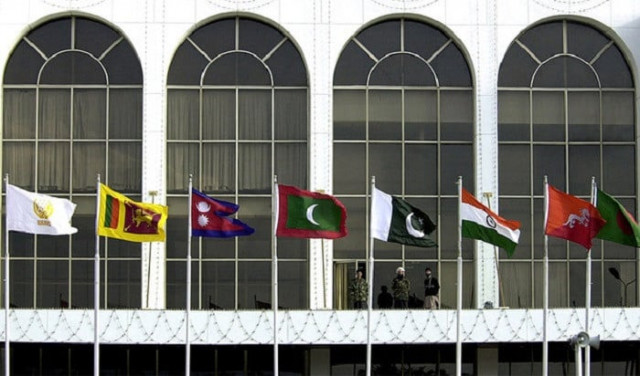Scholars urge reforms to enhance connectivity
Recommend addressing internal challenges, improving linkages with neighbours

Scholars are urging Pakistan to address internal challenges, enhance banking facilities, and improve airline connectivity with neighbours to end isolation in the region and beyond. Simultaneously, they recommend that other South Asian nations soften visa processes to foster socio-economic developments.
The technology revolution has increased connectivity at all levels, particularly among people and families not only within the region but beyond. This has provided nations with an opportunity to influence their governments to sit across the table, talk to each other, and overcome differences to ensure they receive their share of global benefits and advantages.
Speaking on the second day of the two-day conference on ‘South Asia and Regional Connectivity in the 21st Century,’ organised by the Department of International Relations at the University of Karachi in collaboration with Konrad-Adenauer-Stiftung, Dr Salma Malik, Assistant Professor at the Department of Defence and Strategic Studies, Quaid-i-Azam University, highlighted the absence of common banking in the South Asian region, hindering official trade and tourism among neighbours.
Read: How democratic is South Asia?
She recalled a time when the Pakistan International Airline (PIA) served as the point of connectivity, and countries including Sri Lanka and Nepal offered visas on arrival to Pakistanis. However, the discontinuation of visa-on-arrival services by Sri Lanka indicates complex issues impacting its reach beyond borders.
She emphasised that the South Asian Association for Regional Cooperation (SAARC) is least active in fulfilling its objective of regional connectivity, resulting in minimal progress on socio-economic and political fronts in the region.
“South Asia is the least connected region. It is geographically isolated.”
Dr Ellinor Zeino, Regional Representative at Konrad Adenauer Stiftung, urged international engagement with the Taliban government in Afghanistan to address their grievances, focusing on economic prospects, employment, education, and women’s rights. She stressed the need for humanitarian aid and transforming the war economy into a trade hub to alleviate the hardships faced by Afghans.
Dr Talat Shabbir, Director of the China Pakistan Study Centre at the Institute of Strategic Studies, Islamabad, advocated for CPEC’s expansion to connect with Afghanistan, Iraq, Central Asia, and East Asia, highlighting the necessity for political and strategic cooperation.
Published in The Express Tribune, November 23rd, 2023.
Like Business on Facebook, follow @TribuneBiz on Twitter to stay informed and join in the conversation



















COMMENTS
Comments are moderated and generally will be posted if they are on-topic and not abusive.
For more information, please see our Comments FAQ